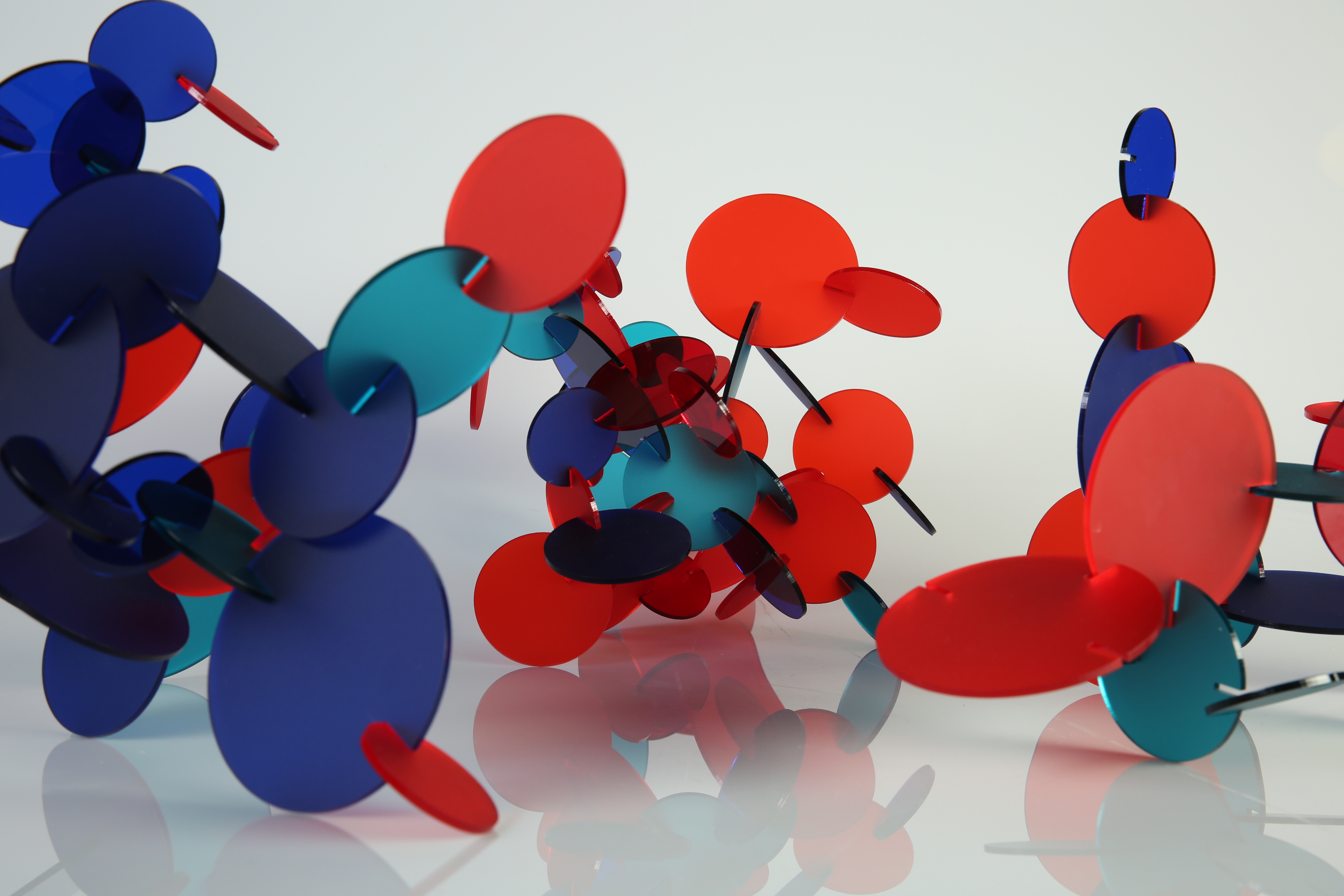Image shows work by Clara Llamas, Jessica Venø, Tracy Gordon, Tianyuan Wei.
UAL researchers and students have been actively involved in the novel European Commission's Joint Research Centre (JRC) project The Future of Government 2030+: A Citizen Centric Perspective on New Government Models - exploring how new forms of democracy and governance might arise out of the profound social and technological changes reshaping how people interact.
On Wednesday 6 March 2019 in an event hosted by the European Parliament and the European Commission, the project will share its results, with UAL showcasing its research involvement and the work of our students as part of a pop-up exhibit.
Professor Lucy Kimbell, Director of the UAL Innovation Insights Hub and Professor of Contemporary Design Practices, University of the Arts London has been supporting the JRC project as part of a consortium with Open Evidence, The Lisbon Council and NYU GovLab. This involved helping JRC deploy design expertise in the year-long project, alongside a foresight approach, to explore possible futures. One strand of work involved JRC working with design schools in six different countries, who were asked to explore the future of government in response to a brief.
London College of Communication's MA Service Experience Design and Innovation students led by Dr Lara Salinas were one of the invited schools. The students worked in conjunction with UAL Public Collaboration Lab: a collaboration between UAL and London Borough of Camden, whose staff and leader took part in workshops with other external guests including from Policy Lab, a team in the Cabinet Office. UAL also supported JRC’s design and development of a design game tool for citizens, officials and activists to use to enable groups of people to explore the future of government. A total of four student projects by UAL students were included in the JRC project website, out of a total of over 40 submitted by the six design schools by 100 students.
A report on the Future of Government by JRC co-authored by Professor Kimbell will also be launched at the event. It will provide an overview of four scenarios of what future government might look like, and the results of design school engagement including some of UAL’s student work.
Professor Lucy Kimbell:
Being invited to support JRC’s exploration of design research as a methodology to explore the future of government has enabled us to refine our approach to translating research for external partners and resulted in new opportunities for students in design schools in six countries.
The project has demonstrated to JRC and its stakeholders in the Commission how design research can open up discussion, engage publics and foreground people’s experiences of interactions with government.
An invited speaker, Professor Kimbell will share insights about how policy-makers can benefit from using design expertise in exploring complex future issues.
Jessica Ann Venø and Michele Cipollone, London College of Communication MA students, whose work was chosen by JRC to be shared more widely, including on JRC’s online platform, will present their projects: ‘Citizens as Policy Influencers’ and ‘Immersive Serious Gamification as a Stimulation Tool’ developed in response to the brief.
Citizens as Policy Influencers: represented by Jessica Ann Venø:
We present a future scenario where citizens are an active part of local policy making. In 2030 all citizens receive an income enabling them to spend part of their time as policy makers. This was made possible in an act of government in 2020 for citizens to engage in regular and ongoing local policy participation. Since that time it has also been an intrinsic part of the education system, with numeracy, literacy and public participation as the key pillars of the school system from Year 1 of schooling. The role of councillors in local government is to provide expert facilitation of these citizen-led, open discussions. Citizens are regular and active problem-solvers in local policy meetings. They are organised by local councillors into competence clusters, in order to fully represent key stakeholder needs fairly and efficiently.
Immersive Serious Gamification as a Simulation Tool, represented by Michele Cipollone:
In this future scenario, the combination of super Artificial Intelligence, Virtual Reality, Immersive Interactive Experience (IIE) and Serious Gaming could help governments to develop and check with citizens the best policy options possible to shape their preferable future scenario. IIE can offer a feeling of being totally immersed in a virtual environment, disconnected from “real” reality, but with the capability to touch and affect the same virtual environment through actions. Serious Gaming is a simulation that has added elements of game, such as a telling a story, tasks/goals, feedback and play.
Michelle Cipollone:
"Have you ever asked yourself: what does 'democracy' mean to you? What is its common definition? How does policymaking work? What is the level of complexity? Or, what are the variables involved in a single, apparently, not so big decision making? We hadn’t, or at least I hadn’t before this project. Finding answers to these questions was the first stepping stone to work on this project. And it sparked the passion that, eventually, led us to our concepts. We assumed the responsibility to open a new horizon by answering our research question: 'What if each one of us could, evenly, participate in shaping the government and its decisions?'
The Future of Government 2030+ project is part of the UAL Innovation Insights Hub’s broader work in knowledge exchange and research to explore and analyse the interconnections between design thinking and public policy development. Related activities include three current joint PhD studentships with the Policy Institute and Department of Political Economy at Kings College London.
Sharing work in progress: The Future of Government 2035+
Read more on the MA Service Experience Design and Innovation course blog.
About the course
Explore the Insights Innovation Hub

